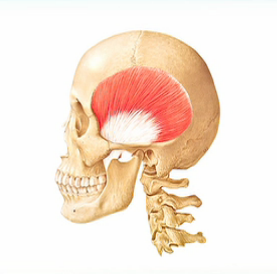
"TMJ" stands for Temporomandibular Joint, or "jaw joint", and unfortunately this is a common area for recurring pain.
The jaw joint assists in the basic opening and closing movement of the jaw. Although conventional wisdom suggests that popping sounds in the jaw indicates a TMJ dysfunction, this is not always true. Many times, your jaw is functioning properly even if a popping sound is present when chewing or talking.
Some signs of a TMJ dysfunction can include:
- Pain or tightness in the sides of the face
- Pain in front of the ear or sides of the head
- Headaches
- Joint sounds like popping or crunching
- Episodes of jaw locking, closed or open
How We Can Help
We offers a TMJ exam that evaluates the joint tissue in the "hinge" of the jaw. Possible problems include swelling, deterioration of the joint tissue or damaged joint tissue (which cushions the jaw bones during the opening and closing movement of the mouth). Common pain relievers and cold compresses can provide temporary relief for most cases of TMJ.
For more serious cases of TMJ, we will recommend alternate treatments. Often, we will suggest using a mouth guard to relieve teeth grinding. In some cases, we will instruct you to use orthodontic appliances or retainers to alleviate discomfort or redirect positioning of the jaw joint. For the most severe cases of TMJ, we may recommend certain invasive procedures.
If you believe you are suffering from a TMJ dysfunction and would like relief from the problem, please contact our office today to schedule an exam.